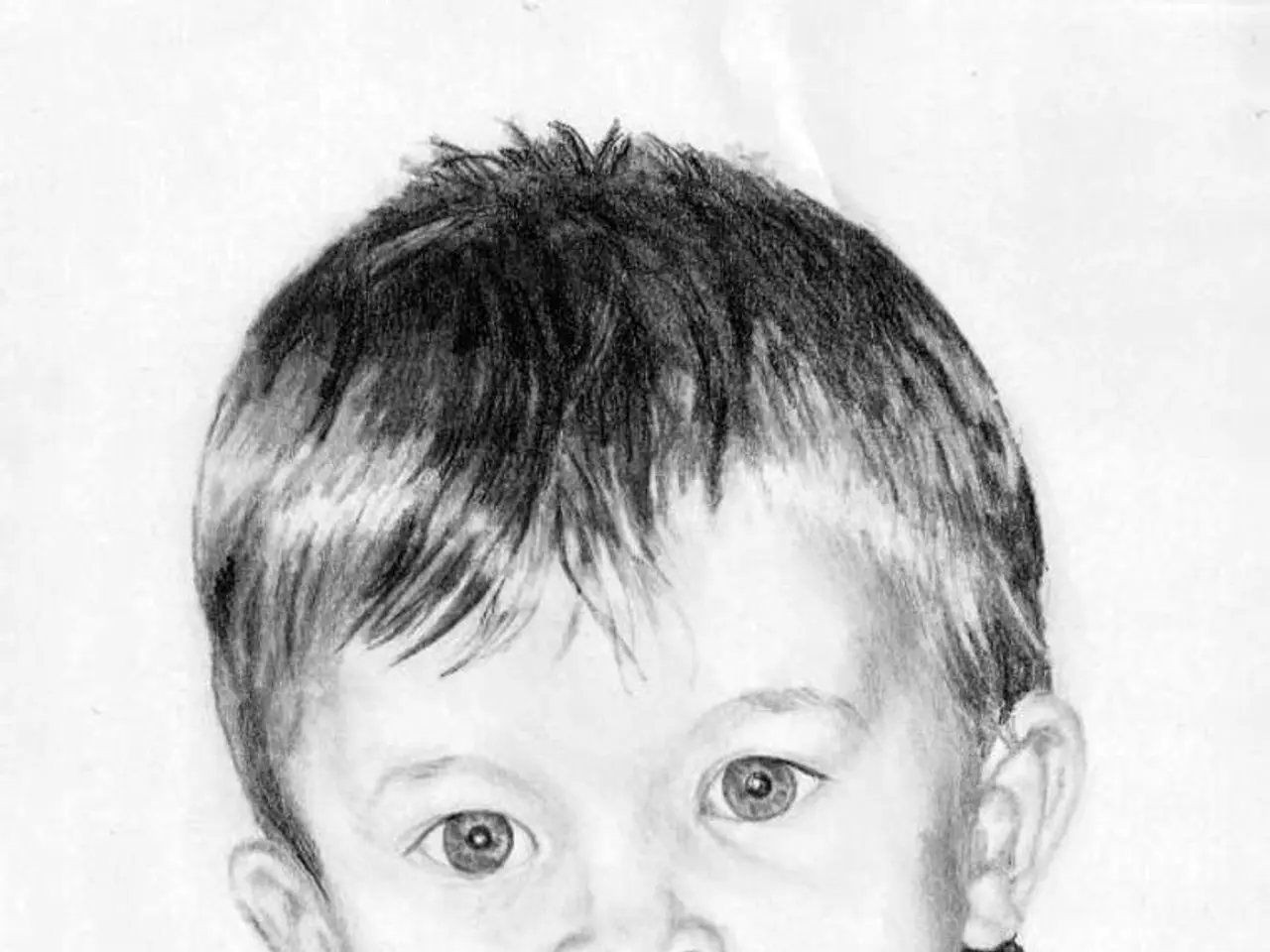Toddler Development Benchmarks: Ages 13 to 18 Months
Toddlers, aged between 13 and 18 months, are on an exciting developmental journey. This stage marks a significant period of growth in physical, cognitive, and social-emotional aspects, shaping their overall well-being.
Physical Milestones
Many toddlers in this age range start walking independently and improve in gross motor skills like climbing stairs, running stiffly, and climbing on and off chairs by 18 months. They often begin cruising (walking while holding onto furniture) around 13 months and progress to walking without support by 18 months[1][3][5]. Fine motor skills also progress, with the development of a pincer grasp, scribbling, and feeding themselves with utensils.
Cognitive Milestones
By 13-18 months, toddlers typically follow simple one-step directions, understand around 50 words, and show comprehension by looking at familiar objects after they are named[1]. They try to mimic words and gestures, use approximations for words, say 1 to 10 words including “no” as an expression of strong opinions, and may point to 1-2 body parts when named[1]. At 18 months, toddlers begin to point to show interest in things, follow one-step commands without gestures, and engage with books by trying to turn pages[3].
Social-Emotional Milestones
Toddlers start showing affection through hugs, kisses, and cuddles around 12-15 months and communicate excitement by clapping[1]. They may raise their hands to be picked up and begin to explore independently while sometimes looking back to caregivers for reassurance[1][3]. By 18 months, toddlers often help with dressing and demonstrate growing independence in feeding themselves, which is part of their emerging autonomy[1][3][4].
Supporting Toddler Development
By actively tracking and celebrating these milestones, parents can support their child's development, identify any concerns, and foster a positive and nurturing environment. Parents can provide opportunities for language enrichment, engage in conversations, read books, and label objects with their names to enhance the toddler's understanding and vocabulary. Offering age-appropriate puzzles and toys that encourage problem-solving can stimulate their thinking and reasoning abilities.
However, it's essential to remember that individual differences exist among toddlers, with some displaying more advanced skills and others taking longer to reach milestones. If parents have concerns about their toddler's development, they should consult a pediatrician or early childhood specialist.
In summary, between 13 and 18 months, toddlers develop critical walking and fine motor skills, start to express language and comprehension, and show early signs of social-emotional independence and affection, all of which are foundational for their ongoing growth and development[1][2][3]. This period also marks significant strides in gross motor skills, such as crawling, pulling to stand, walking independently, and climbing stairs. Problem-solving abilities develop rapidly during this stage, with toddlers figuring out how objects fit together, solving simple puzzles with guidance, and imitating actions of others. Celebrating these milestones helps create a positive and nurturing environment for toddlers, boosting their self-esteem and encouraging further progress.
[1] Zero to Three. (2019). Milestones: Movement (Physical Development). [online] Available at: https://www.zerotothree.org/resources/248-milestones-movement-physical-development [Accessed 15 Mar. 2023].
[2] Zero to Three. (2019). Milestones: Thinking (Cognitive Development). [online] Available at: https://www.zerotothree.org/resources/249-milestones-thinking-cognitive-development [Accessed 15 Mar. 2023].
[3] Zero to Three. (2019). Milestones: Emotions and Relationships (Social-Emotional Development). [online] Available at: https://www.zerotothree.org/resources/250-milestones-emotions-and-relationships-social-emotional-development [Accessed 15 Mar. 2023].
[4] Zero to Three. (2019). Milestones: Self-help Skills (Personal-Social Development). [online] Available at: https://www.zerotothree.org/resources/251-milestones-self-help-skills-personal-social-development [Accessed 15 Mar. 2023].
[5] Zero to Three. (2019). Milestones: Play (Play and Social Interaction). [online] Available at: https://www.zerotothree.org/resources/252-milestones-play-play-and-social-interaction [Accessed 15 Mar. 2023].
- As toddlers learn to walk independently, it's crucial to ensure their safety during playtime, keeping harmful objects out of reach.
- The learning process for kids continues even during breastfeeding, as it provides emotional and nutritional support for their growth and development.
- Encouraging a toddler's emotional development can be achieved through reading bedtime stories, helping them understand feelings and behaviors.
- Social skills are also vital for a toddler's development, with playdates and group activities enabling them to interact with other children, learn sharing, and build friendships.
- In line with the development of fine motor skills, parents can work on enhancing their toddler's science learning through activities that encourage exploration and discovery.
- As toddlers demonstrate growing independence in feeding themselves, it's essential to focus on providing health-and-wellness-conscious meals that balance nutrition and taste.
- Excellent parenting techniques involve teaching kids the importance of safety, setting clear rules, and using positive reinforcement to shape their behavior.
- Promoting a positive environment for education and development means encouraging kids to ask questions, express their opinions, and actively engage in learning activities.
- Family time is essential for toddlers, as it strengthens the bond between the caregivers and the child, supporting their overall emotional growth.
- Observing and celebrating milestones in toddlers' learning, social-emotional development, and physical growth helps keep parents informed and involved in the child's development, paving the way for a more successful future.




